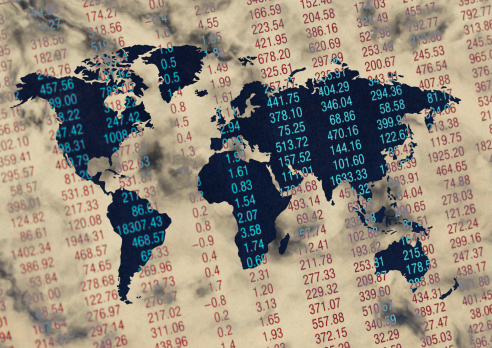Economy
Fitch Lowers Global Growth Estimates Due to Emerging Markets
Published:
Last Updated:
Whether you are seeing projections from the Federal Reserve, the International Monetary Fund, Goldman Sachs or any other place that issues research and makes global growth projections, the trend for the global growth story is going lower. A fresh report from Fitch Ratings has lowered its global economic outlook for 2015.
Fitch forecasts that the global economy will now grow by just 2.3% in 2015. This would be the weakest growth since the global financial crisis in 2009. What has contributed most to this drop in expectations is emerging markets — recessions in Brazil and Russia, a structural slowdown in China and slowdowns in many emerging markets.
There are two bits of good news here among the lower forecast. The drop is only 0.1 points for 2015, not bad for all the negativity we have seen. And the outlook, despite a drop of 0.2 points for 2016 and 0.1 points for 2017, is still for growth to pick up in 2016 and 2017. Fitch is projecting a pickup to 2.7% in 2016 and 2017, based on recovering growth somewhat in emerging markets.
Perhaps a third bit of good news would be that growth in major advanced economies is forecast to rise to 2% in 2016, and Fitch said that this would actually be the fastest since 2011.
ALSO READ: Cities With the Fastest Growing (and Shrinking) Economies
Fitch’s global growth forecast has weakened marginally since June, and Fitch blamed it entirely on emerging market revisions.
Fitch further said that it still expects the Federal Reserve to start the global monetary tightening cycle before the end of 2015, and the agency expects it to be followed by the Bank of England. Still, this tightening is expected to be subdued by historical norms, with a forecast that fed funds will average 0.8% in 2016 and will average 1.6% in 2017.
Fitch anticipates that the European Central Bank (ECB) and the Bank of Japan will continue their quantitative easing programs. The following regional and national notes have been forecast by Fitch:
ALSO READ: 10 Countries Sheltering the Most Refugees
Overall, the good news here is that this remains a story of growth. The bad news is that it does not sound bright at all for the industries that thrive on emerging market growth.
After two decades of reviewing financial products I haven’t seen anything like this. Credit card companies are at war, handing out free rewards and benefits to win the best customers.
A good cash back card can be worth thousands of dollars a year in free money, not to mention other perks like travel, insurance, and access to fancy lounges.
Our top pick today pays up to 5% cash back, a $200 bonus on top, and $0 annual fee. Click here to apply before they stop offering rewards this generous.
Flywheel Publishing has partnered with CardRatings for our coverage of credit card products. Flywheel Publishing and CardRatings may receive a commission from card issuers.
Thank you for reading! Have some feedback for us?
Contact the 24/7 Wall St. editorial team.